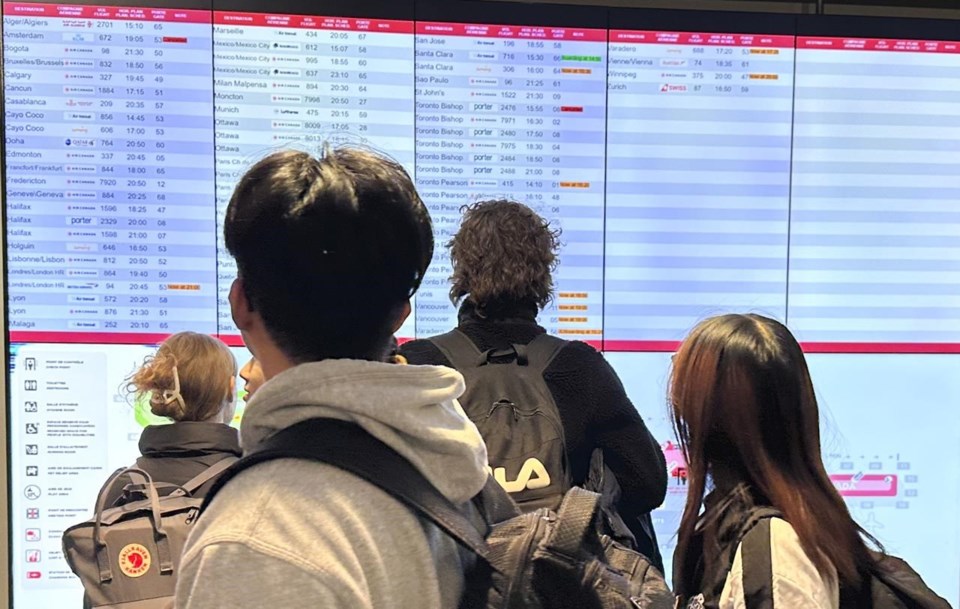MONTREAL — The authority overseeing the Montreal airport plans to spend nearly $4 billion in a bid to reduce congestion and ramp up capacity at the country's second-biggest flight hub.
The announcement Thursday comes after rising passenger volumes and surging car traffic last summer prompted a wave of frustration among travellers trying to make their planes on time.
Gridlock on the road leading to Pierre Elliott Trudeau International Airport last year routinely prompted car passengers to exit their vehicles and haul their bags along the highway off-ramp to the airport, particularly in late afternoon and early evening.
The blueprint for the airport upgrades includes an expanded roadway running past the main entrance, new parking lots and drop-off areas, a satellite terminal and a connection to the REM commuter rail line.
In a speech to the Chamber of Commerce of Metropolitan Montreal, Aéroports de Montréal CEO Yves Beauchamp said Thursday it aims to complete the projects by 2028.
"We are engaged in a race. We have four years to be able to welcome four million more people than today," he told attendees in French at a downtown hotel.
"We need to add capacity to our welcome infrastructure, both on the land side and on the air side."
Travel has rebounded after the pandemic nosedive, with a record 21 million travellers passing through the Montreal airport last year, up 32 per cent from 2022.
"After a forced break of two years, we are back on the growth curve from before. But because of this hiatus, we have less time to carry out the absolutely necessary work," Beauchamp said.
The CEO also said he was in favour of opening the floodgates to private capital once the work is done in order to finance more construction under consideration for 2035. The additional investments would cost another $3 billion to $4 billion, Beauchamp told reporters.
"New financial tools will be necessary," he said.
The chamber of commerce has also put pressure on the federal government to increase airports' financial flexibility.
"If we are not able to change the way airports finance themselves, we will eventually hit a wall," CEO Michel Leblanc said.
During the pandemic, airports added about $3.2 billion in debt to maintain operations as revenue plummeted, even as Ottawa provided some $1 billion in support, according to the Canadian Airports Council.
At the end of 2022, Aéroports de Montréal's debt sat at $2.2 billion. The non-profit has until 2072 to become debt-free, according to the terms of its lease.
With the resources at hand, Beauchamp plans to add remote plane parking lots as well as a satellite terminal that will host boarding gates by 2028.
Meanwhile, the arm of the REM commuter line connecting the airport to the rest of the network is set to open in 2027, reducing reliance on car traffic.
The authority also aims to triple the capacity of the curbside roadway that runs past the airport's main entrance.
To make room for the wider, multi-level drop-off and pick-up areas it looks to build in 2027 and 2028, the airport plans to demolish a parking lot that can hold some 5,000 vehicles in 2026.
A new four-level parking lot hosting 2,800 spots opened in late February, while a second multi-level lot with 3,000 spots is slated to open in 2026, Beauchamp said.
Environmental activists briefly interrupted his speech to denounce "climate inaction" and the airport's growth plans. They highlighted jetliners' greenhouse gas emissions, and chanted in French: "Our burned forests, you don't give a damn."
— With files from Stéphane Rolland
This report by The Canadian Press was first published April 4, 2024.
Christopher Reynolds, The Canadian Press


